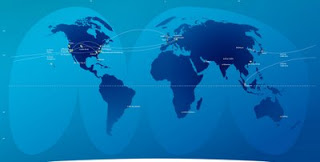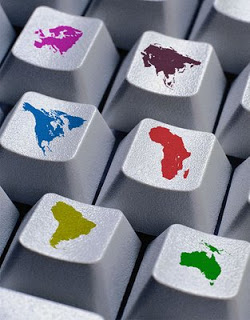The KOF(*) Index of Globalisation measures the economic, social and political dimensions of globalisation. The KOF Index of 2009 shows that globalisation is still on the rise, driven by increased economic and political globalisation, while social globalisation stagnates.

-
Belgium
-
Ireland
-
Netherlands
-
Switzerland
-
Austria
-
Sweden
-
Denmark
-
Canada
-
Luxembourg
-
Hungary
-
Czech Republic
-
New Zealand
-
Finland
-
Singapore
-
Portugal
 that accompany market exchanges. In addition to actual flows of trade and foreign investment, it captures the degree to which a specific country restricts capital and trade flows. Regarding economic globalisation, Singapore shows the highest score. Luxembourg ranks second, followed by Ireland, Malta, and Belgium – all of them small open economies.
that accompany market exchanges. In addition to actual flows of trade and foreign investment, it captures the degree to which a specific country restricts capital and trade flows. Regarding economic globalisation, Singapore shows the highest score. Luxembourg ranks second, followed by Ireland, Malta, and Belgium – all of them small open economies.
The social dimension measures the spread of ideas, information (such as internet use), images, and people (such as foreign inhabitants). The social globalisation ranking is headed by Luxembourg, Switzerland and Ireland.
The political dimension captures diffusion of government policies (includes the number of embassies and participation in international organisations). According to the political sub-index of globalisation, France is the world’s most globalised country. Italy, Belgium, Austria and Sweden are also among the most politically globalised countries.
The index allows comparing degree and changes in globalisation over a large number of countries and more than 30 years. The KOF Index of Globalisation 2009 is available for 158 countries over the period 1970–2006, and is calculated on the basis of 24 variables. The method employed in the calculations allows direct comparison of a specific country’s degree of globalisation over time. Globalisation is measured on a scale of 1–100. The 2009 KOF index adds the number of international treaties that a country has ratified since 1945.
(*) Swiss Economic Institute (Swiss Federal Institute of Technology), Zürich.







